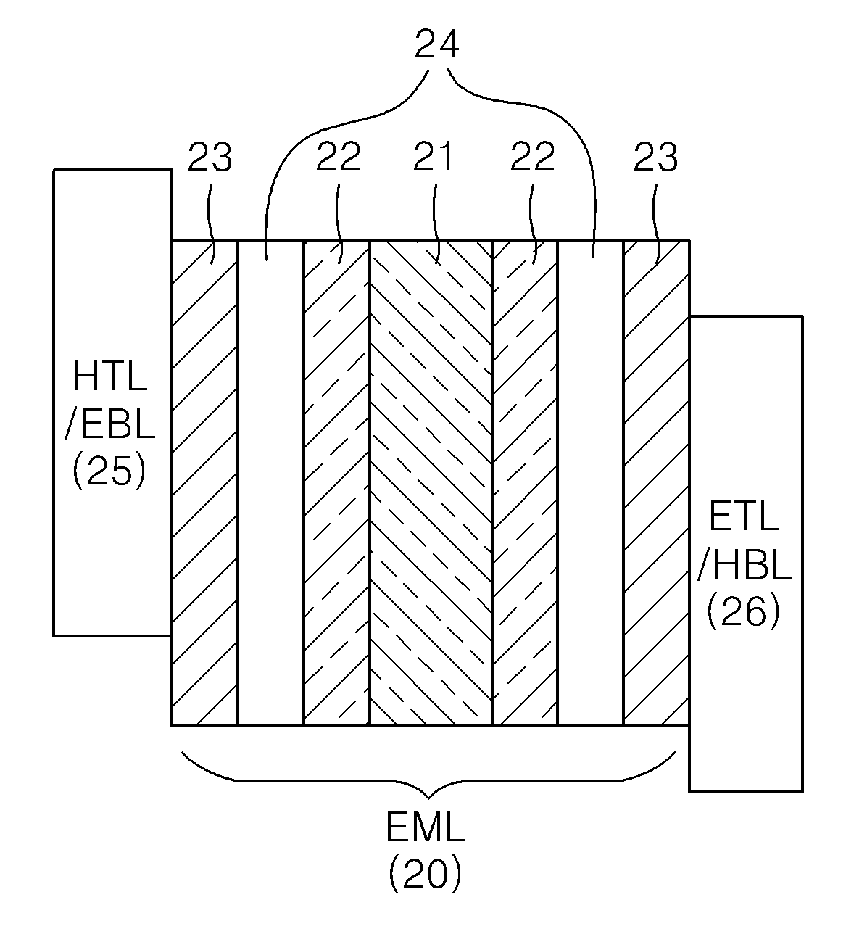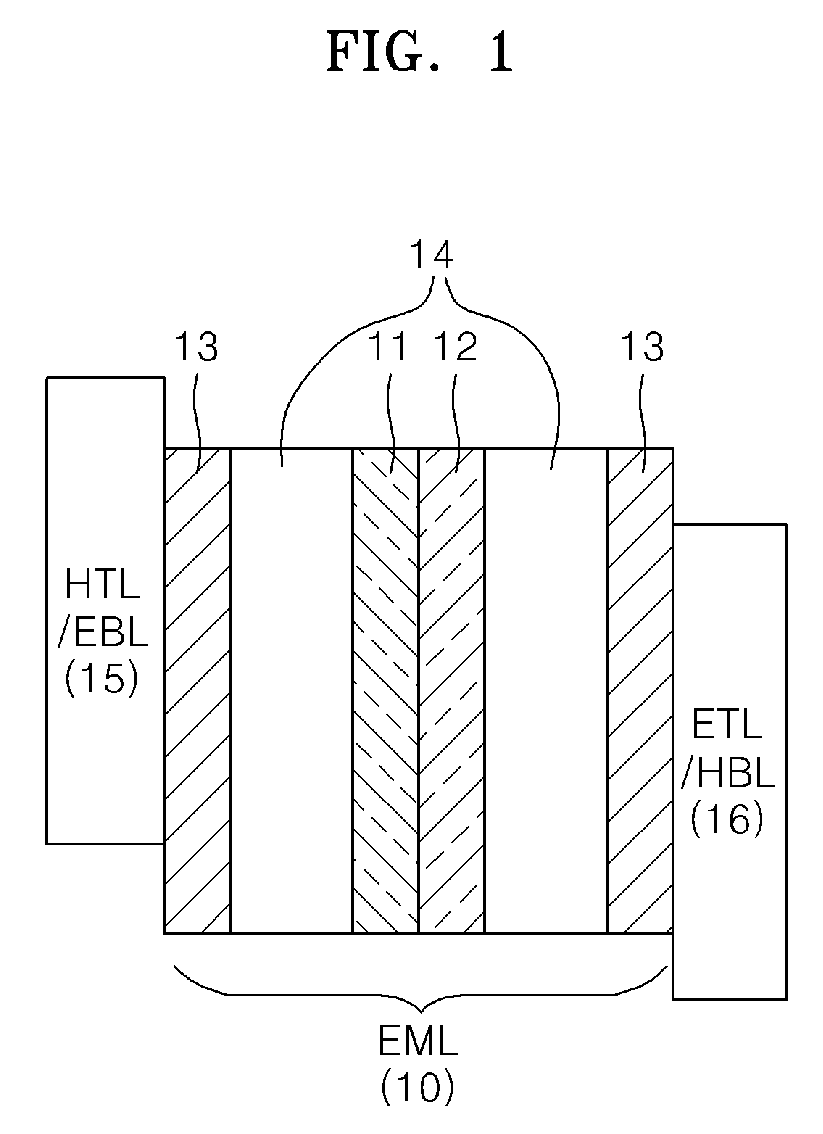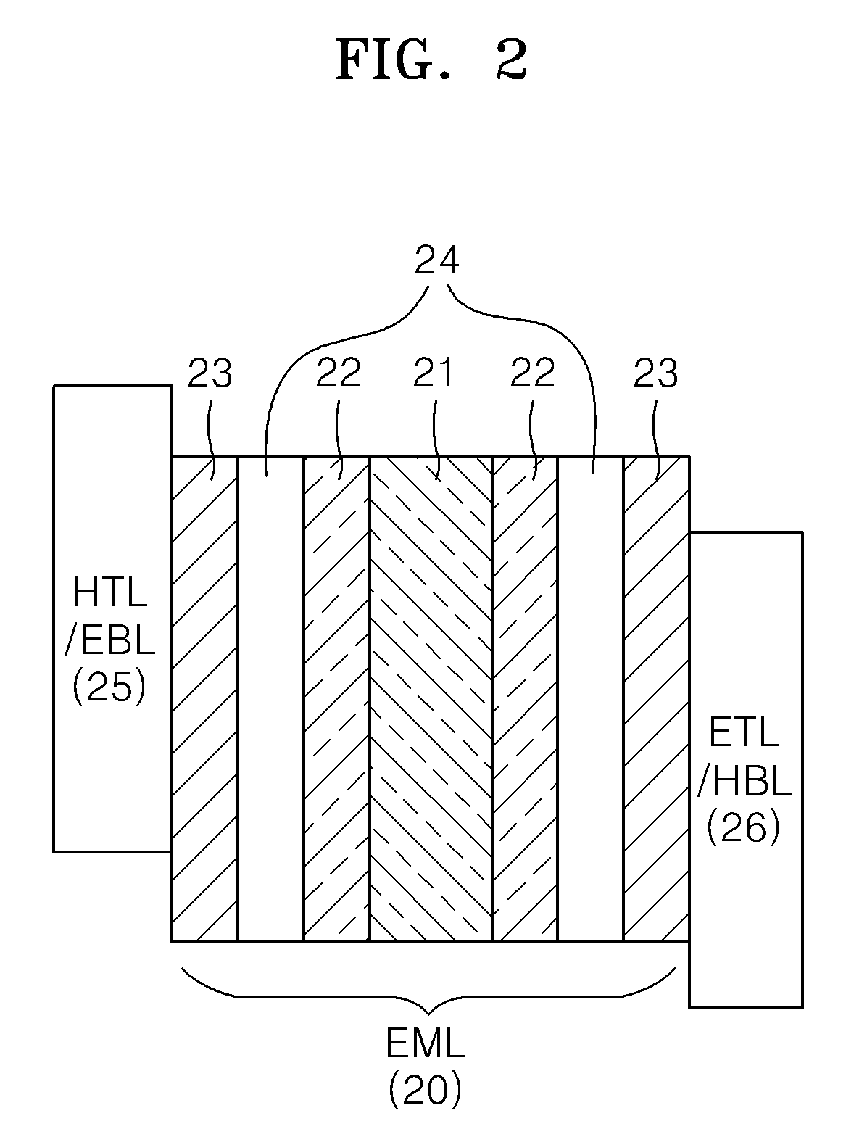White organic light emitting device
a light-emitting device and organic technology, applied in the direction of discharge tube luminescence screen, other domestic articles, natural mineral layered products, etc., can solve the problems of inability to achieve full color using color filters, inability to easily adjust white emission, inefficient energy transfer into dopants, etc., to achieve excellent luminescence efficiency and long life
- Summary
- Abstract
- Description
- Claims
- Application Information
AI Technical Summary
Benefits of technology
Problems solved by technology
Method used
Image
Examples
example 1
[0085]A 15 Ω / cm2 (1,000 Å) ITO-glass substrate used as an anode was cut to a size of 50 mm×50 mm×0.7 mm. The prepared substrate was ultrasonically cleaned in acetone, isopropyl alcohol and pure water, for 15 minutes each, and then further cleaned by exposure to ultraviolet (UV) rays for 30 minutes. NPB was vacuum deposited on the substrate to form a hole transport layer having a thickness of 400 Å. An emissive layer was formed on the hole transport layer by using the following processes: CBP as a host and BCzVBi as a dopant were vacuum deposited together on the hole transport layer in a weight ratio of 5 to 1 , respectively, to form a blue emissive layer having a thickness of 100 Å; 40 Å of CBP as a host was vacuum deposited thereon to form a spacer layer; CBP as a host and 5 wt % Ir(ppy)3 as a dopant were vacuum deposited together thereon, respectively, to form a green emissive layer having a thickness of 30 Å; 2 Å of CBP as a host was vacuum deposited thereon to form a spacer laye...
example 2
[0086]A white organic light emitting device was manufactured in the same manner as in Example 1, except that a spacer layer was not formed between a green emissive layer and a red emissive layer.
PUM
| Property | Measurement | Unit |
|---|---|---|
| thickness | aaaaa | aaaaa |
| thickness | aaaaa | aaaaa |
| thickness | aaaaa | aaaaa |
Abstract
Description
Claims
Application Information
 Login to View More
Login to View More - R&D
- Intellectual Property
- Life Sciences
- Materials
- Tech Scout
- Unparalleled Data Quality
- Higher Quality Content
- 60% Fewer Hallucinations
Browse by: Latest US Patents, China's latest patents, Technical Efficacy Thesaurus, Application Domain, Technology Topic, Popular Technical Reports.
© 2025 PatSnap. All rights reserved.Legal|Privacy policy|Modern Slavery Act Transparency Statement|Sitemap|About US| Contact US: help@patsnap.com



